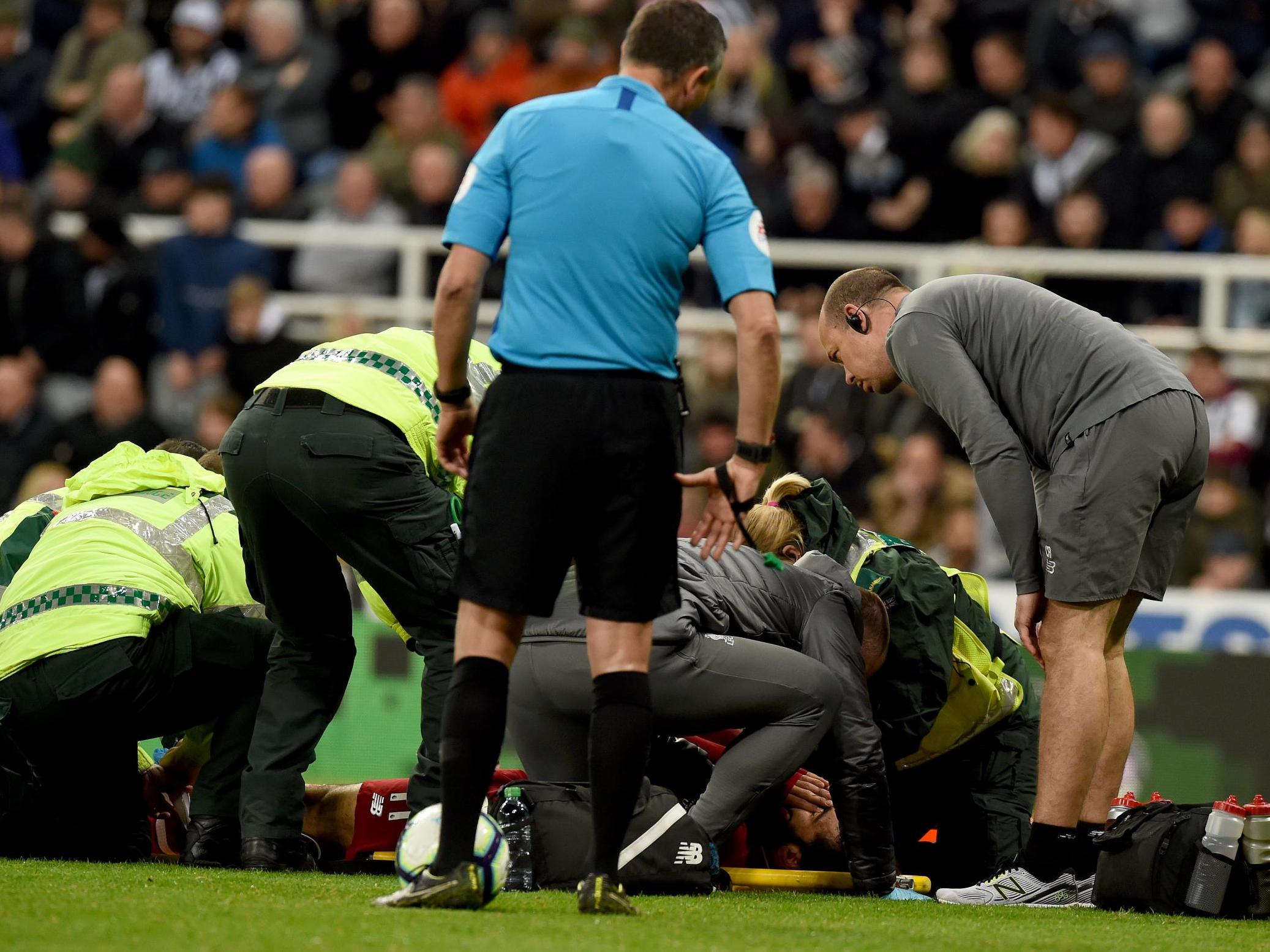Lack of psychological support offered by Premier League and EFL clubs to injured players, study reveals
Exclusive: Dr Misia Gervis, who led the review alongside the PFA, told The Independent that ‘football does not seem to be acknowledging the mental health challenges associated with long-term injury’

A study into player welfare across all levels of the professional English game has revealed a damning lack of psychological support provided by clubs to long-term injured footballers.
The review, carried out by the Brunel University London in association with the Professional Footballers’ Association, found that out of 75 clubs surveyed across the Premier League, English Football League and Women’s Super League, the majority offered limited access to psychologists.
Instead, clubs were typically dependent on physiotherapists to provide psychological support for injured players, despite lacking the appropriate expertise.
In response to the question “Do you have staff trained in the psychology of injury?”, only 37 per cent of clubs reported that they employed staff with the relevant training.
A further 62.3 per cent reported to have “never” or only “occasionally” screened injured players for psychological issues during their recovery.
According to the study, a number of clubs did not identify any psychological issues associated with long-term injury, as exemplified by one respondent who stated: “I never had any psychological issues that required professional input.”
The study was critical of such an outlook, stating in response: “Given the plethora of evidence which demonstrates the prevalence of mental health problems associated with a long-term injury, this statement speaks to the lack of awareness within support teams. The implication of this is that players are being put at risk.”
Seventy-five heads of medical departments from first teams and academies across English football took part in the survey. The overwhelming majority said that they wanted to access professional support, either from a sport psychologist or through referral to other mental health specialists.
The study, led by sports psychologist Dr Misia Gervis, concluded that: “A lack of support mechanisms may be explained by a lack of training of medical staff in the role of psychology in sport injury and a culture within football where psychological support is stigmatised and not understood.”
Speaking to The Independent, Dr Gervis added: “Professional football does not seem to be acknowledging the mental health challenges associated with long-term injury.
“In my experience rarely is the psychological trauma associated with long-term injury given equal weight to the physical suffering, and this is borne out by our findings.
“The fact that there aren’t enough qualified psychologists employed means that there is a reliance on other staff to recognise mental health problems when this is not their area of expertise. So I feel that there will be players that can slip through the net.”
This follows The Independent’s investigation into mental health in sport, which highlighted the football’s shortcomings in providing sufficient support for athletes during times of injury.
In one case uncovered as part of the Sporting Mind series, Ipswich Town was accused of failing to adequately support the mental health of a former academy youngster after mishandling an injury the player sustained during his time at the club.
The player, who was 16 at the time, alleges that the club’s physiotherapists ‘didn’t really 100 per cent know what they were doing’ and “ran out of ideas” in treating him as a back injury came to repeatedly hinder his form, fitness and even the ability to walk on some days.
During his rehabilitation, numerous hours of each day were spent hanging around in the changing room, waiting to see the physiotherapist, “not really doing anything”.
Although he did not raise concerns at the time, the youngster himself admitted to the English Football League in July 2018 that, “looking back now”, it’s likely he struggled mentally during his time at the club.
Weekly informal approaches were made by Ipswich’s welfare officers and coaches to inquire about his wellbeing, but the player insists he never had a one-on-one meeting with the club’s sports psychologist.
His experience – which can be read in full here – saw the PFA “urgently” demand the FA carry out a “thorough and far-reaching safeguarding investigation” into the matter. Despite Ipswich’s insistence that the PFA, FA and EFL “found no substantiation to such allegations to warrant any action,” the EFL is continuing to investigate the episode.
Ipswich says it “acted to the highest standards in the player’s medical treatment in line with the National Institute for Clinical Excellence (NICE) guidelines and in his general well-being.”
QPR’s ‘RETURN’ protocol
R – Rehabilitation (Physical)
E – Emotional/Psychological Recovery
T – Team based support (physiotherapists, sport psychologist, sport scientist, coach)
U – Unique to each individual player
R – Readiness, both physically and psychologically, to compete.
N – Normalised (all long-term injured players receive psychological support throughout recovery, and are regularly screened)
Dr Gervis, who also works as psychologist as Queen Park Rangers, said cases such as these were to be expected within football given current attitudes towards the issue.
“As a practitioner I am very aware of the potential of this happening which is why we [QPR] do rehab very differently to try and guard against this with constant psychological support,” she said. “If there is no routine psychological support then the risk of such cases is increased.”
In treating long-term injured players, QPR deploys a “holistic” approach to rehabilitation rooted in the club’s ‘RETURN’ protocol, which, according to Dr Gervis, has returned positive results in the treatment and recovery of players.
Addressing how to improve football’s shortcomings in this field, Dr Gervis said: “A cultural shift of practice is needed by medics, physios and coaches.”
The report recommended the creation of protocols, as seen with QPR. “These should aim to increase the number of appropriately qualified psychological professionals treating long-term injured players, create written procedures for screening and referral and ensure mental health is included in medical insurance.”

Join our commenting forum
Join thought-provoking conversations, follow other Independent readers and see their replies
Comments